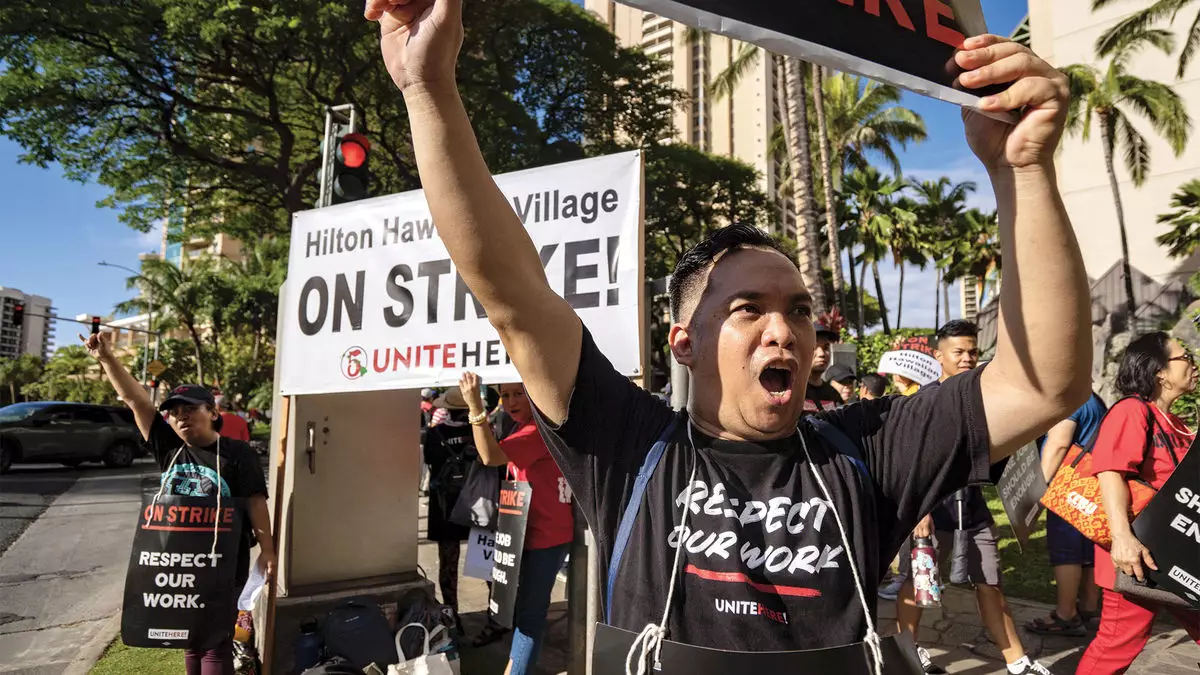The recent Labor Day weekend walkouts staged by 10,000 hotel workers across nine U.S. cities sent shockwaves through the hospitality industry. Although the workers have returned to their posts, the threat of further strikes looms large, signaling a potential stalemate in contract negotiations.
The Widespread Strikes
Organized by the labor union Unite Here, the strikes impacted 25 properties operated by major hotel chains, including Hilton, Hyatt, and Marriott International. Cities like Baltimore, Boston, and San Francisco faced one to three-day strikes, marking Unite Here’s most widespread series of hotel walkouts to date.
The hotel workers were advocating for higher wages, fairer staffing levels, and the reversal of service cuts implemented during the pandemic. These cuts resulted in job losses and increased workloads for existing employees, as reported by the union.
Industry Profits vs. Worker Struggles
Gwen Mills, international president of Unite Here, criticized the hotel industry’s record profits, contrasting them with the challenging circumstances faced by workers and guests. Many employees struggle to support their families in expensive urban markets, leading to discontent and demands for better working conditions.
David Sherwyn, an academic director at the Cornell Center for Innovative Hospitality Labor and Employment Relations, highlighted how service cuts have transformed the industry. Automation and technology have reduced work hours and pay for employees across various hotel departments, reshaping traditional roles.
While acknowledging the workers’ concerns, hotel operators like Hyatt and Hilton emphasized their commitment to fair negotiations and competitive compensation packages. However, the success of these offers in reaching a resolution remains uncertain, with ongoing discussions being critical in averting further conflicts.
Sherwyn underscored the importance of public sentiment in determining the outcome of these disputes. While past union strikes in other industries have garnered significant support, the hospitality sector’s customer-facing nature presents a unique challenge. Public opinion and the level of support for the workers could sway the balance of power in future negotiations.
The recent hotel worker strikes have exposed the underlying tensions within the hospitality industry, pitting worker demands for fair treatment against management concerns about operational costs and market recovery. The resolution of these disputes will hinge on constructive dialogue, mutual respect, and a willingness to address the core issues affecting employees in a rapidly evolving industry landscape. Only time will tell whether the recent strikes were a temporary disruption or a precursor to more prolonged conflicts in the future.

